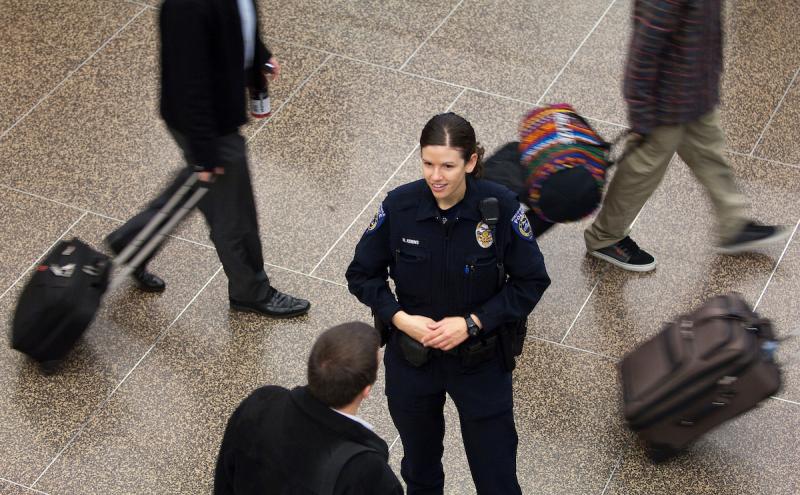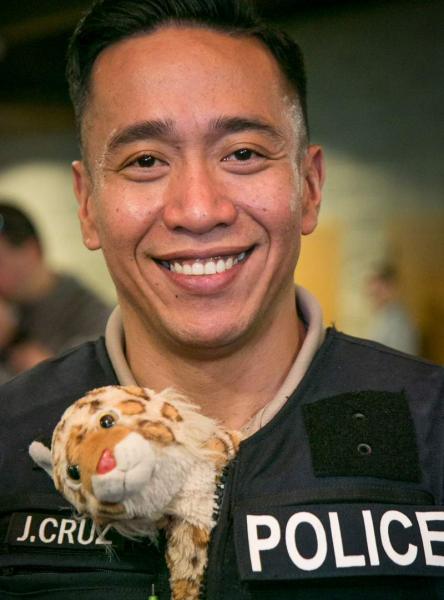
Port of Seattle Police Department Sergeant Jason Coke spends his work days patrolling Sea-Tac Airport. When he had to navigate through Sea-Tac during a family emergency, he didn’t realize how challenging it would be. He was traveling with his then-pregnant wife to Los Angeles to visit his father, who had just had a heart attack.
“It was stressful even though I’ve been through here a thousand times,” Coke said.
He started thinking about people travelling through the airport who were sick or had other stress affecting their lives. He had previous experience with Seattle Children’s Hospital — he once served coffee there. This spurred the idea of a partnership between the Port of Seattle Police Department and Seattle Children’s Hospital.
Airport escorts
For the past 10 years, Port of Seattle Police Department officers have provided escorts to sick children flying into Sea-Tac to receive care at Seattle Children’s hospital. Officers will meet the family at the gate and escort them to their luggage and finally to a car pickup service provided by Seattle Children’s. In the past, the hospital offered airport pickup to patients for appointments or treatments. According to Renata Taylor, guest service specialist at Seattle Children’s Hospital, families often had trouble making it through the airport to connect with the hospital’s pickup service. And the police escort makes it easier for patients to reach their destination.
Unfamiliar territory
Many patients fly in from rural locations in Montana, Idaho, and Alaska for treatment and are unaccustomed to navigating a large airport. Taylor said this is frequently the case for many families who fly in from tiny villages in Alaska. Traveling to Seattle is a huge change from what they are used to, but it’s essential to travel to receive lifesaving care. In many cases, it’s their first time leaving the state — or even their village. People in rural parts of Alaska often don’t have easy access to cell phones, running water, or even medical care. There may be one medical assistant for a village of 300 and to receive care they may need to take a bush plane to a larger city in Alaska, then work their way to bigger cities on the way to Seattle, Taylor said. As a result, a journey to Seattle can take days.
On top of navigating unfamiliar territory, these families are traveling with sick children. “There’s nothing worse than being dumped at the end of the C Concourse and trying to make it to the baggage claim,” Coke said. With a police escort “it’s one less thing they need to worry about,” he said.
Coke said that participating officers end up escorting children through Sea-Tac at least once a week.
He said officers enjoy helping out in a program that makes them feel good. “Rather than responding to a stolen bag (or something negative) we get to make a positive difference.”
Smoother connections
Taylor said the police department’s involvement makes the Children's Hospital airport pickups run much more smoothly.
“Oftentimes we couldn’t find the families because they weren’t able to navigate through the airport,” she said. “They would get lost in the airport, which was very traumatic for them. They’d miss appointments that were necessary before an operation could be scheduled.”
Renata said for a family who had never left their village, having an officer in uniform meet their plane can be very exciting.
“They are like their super heroes,” she said. “I’m hoping the officers know they make the biggest difference.”






